Aloe Vera, the modest houseplant, is believed to be a wonder herb, being used for its medicinal properties since ages. This plant is found to be rich in nutrients that help improve digestion and even boost immunity. Aloe Vera application in gel form can also be used to enhance skin and hair health. In this blog, we’ll discuss how this aloe vera gel can help you achieve a young, radiant skin and smooth, shiny hair.
Before we get into the essential reasons and health benefits of Aloe Vera, let us first learn how to make Aloe Vera gel directly from the plant. If you have an Aloe Vera plant at home, select its thicker leaves or stems and cut it from the base. You may also pull its leaves from their bottom. Be careful as the plant has thorns1.
Next, use a sharp knife to slice the thorns from the edge of each leaf. Then slice the aloe vera stalk in half while keeping the gel side upwards. You may slice open leaves as well. Use a spoon to scrape the gel into a container. When all the gel is scraped out, refrigerate the container and store the gel.
A lot of ready to use aloe vera gels are also available in the market. So, if this process seems too tedious for you, you can just buy one as well.
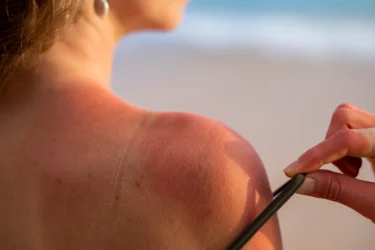
Aloe Vera gel has anti-inflammatory properties and is cooling in nature. It can be one of the best natural remedies for burnt skin like in case of a sunburn2. Applying this gel helps form a protective layer on the skin, and it also helps to retain moisture. It is rich in antioxidants as well as minerals that can help boost the healing. So, now you can enhance summer skin health using aloe vera.
Aloe vera contains the enzyme bradykinase, which is the active ingredient to suppress signs of inflammation, namely redness, swelling, pain, and heat when the gel is applied on the skin5.
Dr. Siddharth Gupta, B.A.M.S, M.D (Ayu)
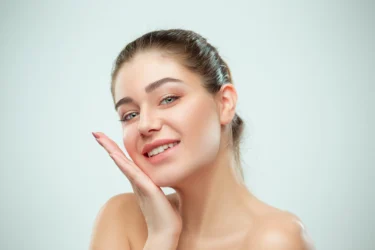
Unlike regular moisturizers that are available in the market, Aloe Vera gel, when used as a moisturizing gel, doesn’t leave a greasy film on the face and the skin. In fact, it does just the opposite by unclogging the pores and softening the skin.
It can be used as an aftershave treatment. This is because Aloe Vera gel helps to keep the skin hydrated and due to its anti-inflammatory nature, helps in healing small nicks & cuts like those occurring with razor use. It also helps deal with a dry skin3.
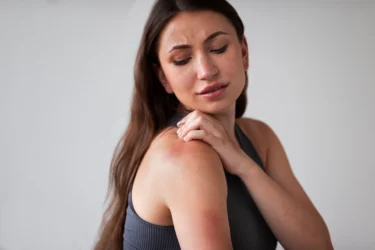
Aloe Vera is known to be beneficial for burns, cuts, and other minor injuries. This is because Aloe Vera boosts healing of wounds, and reduces the time of healing. It’s a great skin burn treatment, especially for the smaller and superficial ones. Aloe Vera is said to penetrate the epidermis, i.e., the outer layer of the skin faster than water and speed up skin cell formation, promoting repair4. However in case of major burns or injury, please consult a doctor and follow medical advice. Natural remedies like Aloe Vera should only be used as adjunct in such cases.
There has been a recent advancement regarding the composition of aloe vera. Researchers have isolated a compound, alprogen from aloe vera which is found to be effective against skin allergy5.
Dr. Rajeev Singh, BAMS

Aloe Vera gel has vitamin C and E, and beta-carotene in abundance. These are antioxidants that help fight oxidative stress in the body, leading to its proposed anti-ageing effects. It also has antimicrobial properties and is anti-inflammatory, and helps to increase the production of collagen in the body and improve skin elasticity5. It may therefore help eradicate skin blemishes and diminish age lines, although results can depend on several other factors.
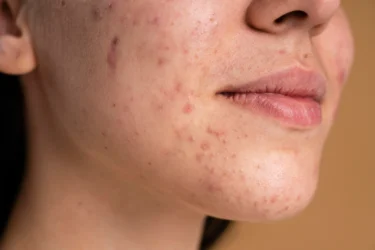
Aloe Vera can be suitable for even those who have acne prone skin. It helps in gentle cleansing, and its antimicrobial properties can help reduce pimples without causing any damage to the skin. Aloe Vera contains polysaccharides and gibberellins. These may help in the growth of new cells and at the same time, reduce inflammation and redness. It may also work as an astringent to reduces the size of pores, flushing out the excess sebum, microbes, and dirt6.
A Highly effective and prominent compound which works against inflammation of the skin has been recently extracted5.
Dr. Ashok Pal, B.A.M.S.
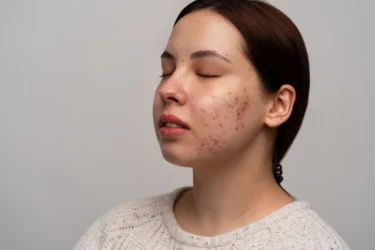
As already discussed, Aloe Vera can help speed up skin cell reproduction and reduce redness by fighting skin inflammation. Plus, its active agent aloin has skin depigmenting properties. So, it may be used as a natural way to manage stretch and acne marks, reduce freckles and lighten age spots7. Adding some lemon juice to the gel mixture can make it one of the perfect home remedies for glowing skin.
Aloe vera gel is considered a great cleanser for the skin due to its antiseptic action. It is comprised of soap-like substances, saponins, which are effective antiseptic agents5.
Dr. Smita Barode, B.A.M.S, M.S.

Like skin reproduction, Aloe Vera gel may help in activating new hair growth by increasing the blood circulation to the scalp. It also provides essential minerals and vitamins. However, when it comes to hair growth, results may vary as individual factors do play a role. Aloe Vera contains proteolytic enzymes that can help repair dead skin on the scalp. So aloe vera works as a great remedy for scalp problems in women and men8.
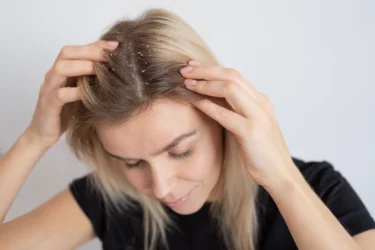
Aloe Vera helps in healing dry scalp, fungal infections, and an excessively oily scalp. All these are significant causes of dandruff. Aloe vera is one of the very useful natural ways to get rid of dandruff9. Although a flaky scalp can be due to several reasons, ranging from scalp infections to inflammatory conditions like psoriasis. It’s best to discuss with a dermatologist before resorting to natural remedies for any major scalp issues.
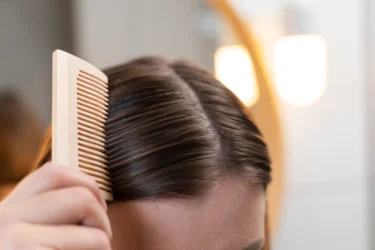
Just as it helps in moisturizing the skin, Aloe Vera also helps to condition the hair and soften it. Regularly applying Aloe gel to the hair and scalp helps to maintain the vitality of the hair and gives a smooth shiny appearance1,10.
Although initial studies have shown benefits of aloe vera for skin and hair, further large-scale clinical trials are needed to confirm these. Also, remember its best to consult a dermatologist before considering any home remedies for your skin or scalp-related issues.
Did you know that there are almost 250 different aloe vera varieties, out of which only 4 are capable of beneficial effects on health? Also, aloe vera is 96% water. The health benefits are due to the constituents which constitute about 4% of the composition of aloe vera11.
Dr. Anuja Bodhare, B.A.M.S, M.D (Ayu)
Here are a few simple and easy Aloe vera DIY recipes for using on your skin:
Also Read: Effective Uses & Benefits of Aloe Vera!
Aloe vera can have a wide range of possible medical applications, including several advantages for skin and hair health. It can help hydrate the skin, heal minor burns and injuries and also help lighten pigmented areas. It may also help deal with scalp issues and make your hair smooth and shiny. However, remember that it must be used carefully. Inappropriate use of aloe vera, such as ingesting it orally, might have negative health implications. Consult your doctor to understand and manage the underlying cause for your problem first and follow their advice on safe and appropriate use of home remedies like aloe vera alongside.
There may be a few side effects of aloe vera that can occur in some individuals. If you take aloe vera orally, it might cause cramping and diarrhoea as it has a laxative effect. High doses of oral aloe are dangerous, and you can also have intestinal problems, heart issues, haemorrhoids, kidney problems, diabetes or electrolyte imbalances with excessive consumption.
Aloe vera used in creams and gels vary in dosage. While some may have just 0.5% aloe vera, others may contain as much as 70% aloe vera. Aloe as an oral supplement must be consumed in moderation and it is best to consult a doctor before using the same.
Aloe vera is often used as a natural remedy for minimising the appearance of dark circles. It may improve skin texture by moisturising and reducing inflammation and can be used under the eye for dark circles, but not too close to the edge of your eyelid.
Disclaimer: The information provided here is for educational/awareness purposes only and is not intended to be a substitute for medical treatment by a healthcare professional and should not be relied upon to diagnose or treat any medical condition. The reader should consult a registered medical practitioner to determine the appropriateness of the information and before consuming any medication. PharmEasy does not provide any guarantee or warranty (express or implied) regarding the accuracy, adequacy, completeness, legality, reliability or usefulness of the information; and disclaims any liability arising thereof.